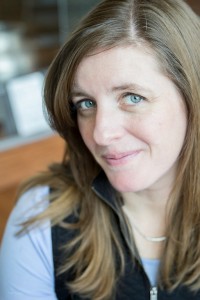 Bridget is a middle grade author and her debut, THE RAT PRINCE, releases from Margaret Ferguson Books/Farrar, Straus & Giroux/ Macmillan Publishers on August 23, 2016! she is represented by Eric Myers of Dystel & Goderich Literary Management.
Bridget is a middle grade author and her debut, THE RAT PRINCE, releases from Margaret Ferguson Books/Farrar, Straus & Giroux/ Macmillan Publishers on August 23, 2016! she is represented by Eric Myers of Dystel & Goderich Literary Management.
Connect with Bridget . . .
Website * Facebook * Twitter * Goodreads
Preorder the book . . .
Amazon

Not that I'm some kind of authority, but I'm happy to share my thoughts!
So, I'm assuming you've already polished like crazy, you've tailored your word count, and you've incorporated into your manuscript the feedback and edits of at least two beta readers or critique partners. Now I would say, prior to starting the querying process...do the emotional prep.
Get yourself into a determined, focused space in your head. A place from which you can do business.
These days, writing a book you intend to traditionally publish is committing to the equivalent of doing a startup company. Querying is the first stage of "Startup You". If you succeed in getting an agent and selling, this will become an all-consuming endeavor for at least the next two years, and you will be responsible for doing most of the work yourself.
Are you ready for it?
Then it's time to research agents.
What are some important things for querying writers to consider when researching agents?
In addition to all the good advice you can find online and at conferences, I would suggest you take a good hard look at your manuscript and ask yourself: what genre is this puppy? Yes, you may think you wrote an awesome YA, but it may in fact be an awesome Middle Grade. Or even a wonderful mainstream romance or work of speculative fiction. Do the research, and ask your critique partners and beta readers if they think it fits where you believe it does. This will be a huge factor in figuring out which agents will want to represent your manuscript.
Then, it's all about Google and social media platforms, finding out as much as you can about the agents. Unfortunately, there is no "Common Application" like there is for college admissions; every single agent has a different thing she or he wants to see in a query, and it changes often. I spent most of my querying time carefully studying these individual preferences, and making sure I followed them to the letter.
Are there any conferences you attended that really helped you move forward as a writer during this stage?
I learned everything I knew about the process from the amazing Romance Writers of America. What a sharing, caring bunch of professionals. They love their work and they love their readers, and it shows. And soon I'm going to attend my first SCBWI conference!
My agent, Eric Myers, was so clearly a great personality match for me. I felt it from the very first phone call. I found we had many interests in common, above and beyond literature, and I knew I could work with him. I had done my research, and discovered before I queried that he represented a best-selling author in my genre whose work I loved, so our tastes were aligned.
He had very perceptive questions to ask about the manuscript of THE RAT PRINCE, and he made it clear he was interested in me as a writer with long-term career goals. I knew he would treat me with respect, but not shy away from difficult discussions if they became necessary. And that's how it turned out!
All I can say is, hold on tight, because it can happen fast once it gets going. My agent sent THE RAT PRINCE around, and within a few weeks, I had to make a choice between two publishers. My wonderful editor Margaret Ferguson has her own imprint at Macmillan/ Farrar, Straus & Giroux, and she put a pre-empt offer on the table. My agent helped me understand the pros and cons of the situation and allowed me to make my own informed decision. I'm still so grateful to all the people involved who showed interest in my work.
How did you celebrate when you got the news about your book deal?
Honestly? I was too stunned to celebrate. I kind of sat around and trembled like a deer for a couple of days.
Being one of the original "Sixteen" of The Sweet Sixteens (founded by Kathy Macmillan) has been an intense amount of work and an extra-special, transformative experience!
I've learned so much. When we started, I didn't even know what a Cover Reveal was, or a Sell Sheet, or even swag...and I had no website, no Twitter account, no Facebook Author page, nothing. I didn't know how to write a ProBoards post or do a Google Hangout. But now I can do all those things and more, thanks to the patient kindness and information sharing of my fellow debuts. The entire membership has been a humming, busy, hive of sweet support.
What an amazing thing it is to realize our dreams are coming true...and we're here to lift each other up. Because we stumble under the burden of just how much work and self-sacrifice those dreams demand of us. Every single day.
If you're aiming for a writing career (and I assume you must be, if you've read this far), I'm here to tell you what I wish someone had told me: it's going to take everything you have to give, and the real work comes after you sell, not before.
But, oh!
It's worth it!
Read inspiring stories of writers getting agents
Learn about Tools for Writers- like Scrivener






























